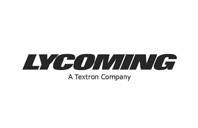Lycoming Engines
Senior Executive Richard Millman needed to turn around Lycoming whilst building teamwork, leadership and trust across the organisation.
For over 65 years, Powered by Lycoming has been synonymous with quality, reliability and performance in the single engine aircraft industry, and Lycoming, headquartered in Williamsport, Pennsylvania, currently produces over 50% of the engines for new general aviation aircraft worldwide.
However, neglect at the hands of corporate owners, decades of underinvestment, and difficult times in the general aviation industry resulted in a steady decline.
A 1994 decision to outsource all manufacturing resulted, several years later, in significant quality problems in crankshafts, pistons and bolts that led to several accidents, a massive recall program and near bankruptcy.
In addition to the declining quality and financial fortunes of the company, the relationship between Union and management deteriorated, making a turnaround even more difficult. Trust, pride and productivity all suffered as a result.
Under the leadership of Richard Millman, a seasoned senior executive tasked by Textron to “put things right”, Lycoming initiated rigorous quality control systems, an unprecedented $37 million customer care program, new management expertise and borrowed technical support from other Textron divisions.
The pieces were coming together, but was it possible to develop a new strategic focus and regain the trust of the workforce at the same time? And would it be enough?
With a clear mandate, financial support and added expertise, Richard Millman knew there was one more key ingredient required for a successful turnaround: a culture of trust, respect, pride and clear focus on objectives. He also knew a positive culture couldn’t be mandated, it had to be led from the top.
A small team from Reconsulting was tasked by Millman and Roger Pasco, acting Head of Operations, to design and develop a new culture of leadership and teamwork that would underpin the business turnaround required. It wasn’t long before everyone realised one of the key barriers was a silo mentality with little trust or communications between functions.
“Everyone seemed to be pulling in different directions and blaming each other for poor performance. It was hard to get a coordinated restructuring effort implemented,” remarked Pasco.
After conducting a series of culture assessments and interviewing key managers and Union employees, Reconsulting drew up an approach that began with building teamwork and support among senior management. This two-day workshop was effective in breaking the old silo culture and instilling greater openness, trust and support.
A strategic planning workshop quickly followed and put in place the initiatives and objectives necessary for a successful turnaround. “At last I believed we had a real chance to save this company,” said Dave Dawes. “Our first year goal was to break even, from a significant previous loss. I got so excited about our plan that I volunteered the extra dollar that would put us in the black.”
“We’ve finally got the kind of teamwork and leadership I recognise,” said former Marine Colonel Don Wagner. “And it’s making a difference.” Wagner and the other senior executives quickly began communicating the new turnaround strategy, themed “Back the Future”, in a series of offsite workshops for all management that was designed and co-facilitated by Reconsulting.
While the teamwork and alignment was beginning to take hold, problems with a successful Union contract negotiation continued to stall momentum and additional supplier quality problems arose that nearly sidetracked the turnaround effort.
In October 2004, Millman put in place a new president, Ian Walsh, a young, talented and energetic Textron executive with practical aviation experience as a Marine pilot. With several key promotions and added expertise in sales, the new Lycoming Senior Team breathed fresh life into the company turnaround. Walsh personally led the way for a new relationship with the union.
Currently, sales are climbing, quality is stabilising, morale is up and the brand is returning to its former glory as “the power of choice” for the single engine aviation market. Not content with a successful turnaround, Lycoming is building for the future with the launch of a series of radical new high performance engines.
“We’re coming back strong,” says Walsh, “and we couldn’t have done it without our loyal customers and our talented workforce.”


